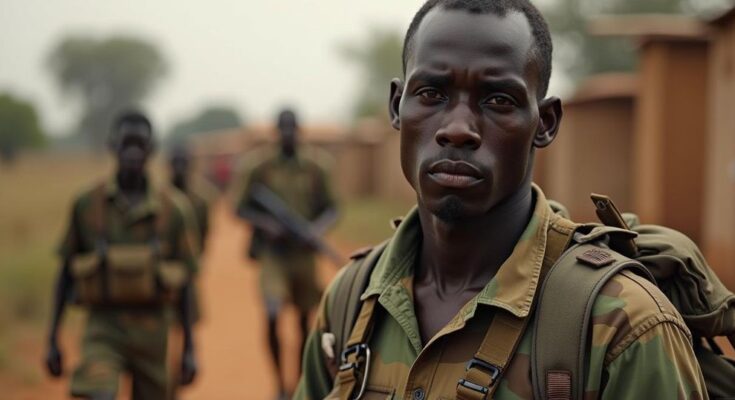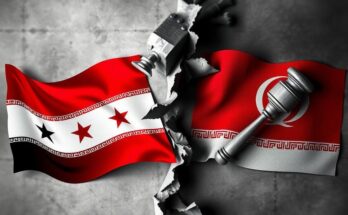Attacks and counterattacks in South Sudan have led to the deaths of 24 individuals, primarily civilians, amid ongoing violence in the country. The United Nations has called for an immediate investigation into these events, highlighting the enduring instability that has plagued South Sudan since its independence.
In recent violent clashes in South Sudan, twenty-four individuals, predominantly civilians, lost their lives due to attacks by both rebel forces and government troops, as reported by local authorities and the United Nations. The violence unfolded this week in the region of Central Equatoria, highlighting the ongoing instability in a nation that has incessantly confronted crises since its independence thirteen years ago. This month marked the postponement of long-awaited elections, further complicating the already volatile political landscape. The clashes were attributed to a faction of the National Salvation Front (NAS) engaged in conflicts with government forces. The UN Mission in South Sudan (UNMISS) expressed grave concern over these interconnected incidents that accounted for the deaths of 24 individuals, including 19 civilians. UNMISS head Nicholas Haysom officially stated, “I am deeply concerned by these brutal acts and urgently call on the government of South Sudan to conduct an immediate investigation to bring perpetrators to justice swiftly.” Meanwhile, Gerald Francis, the peace minister in Central Equatoria, elaborated on the barbarity of the assaults, indicating that armed attackers specifically targeted young individuals, with many suffering grievous injuries or being killed outright. Description of these acts was characterized by Francis as a “horrific massacre.” The NAS group has continued its armed opposition due to its failure to sign a peace agreement reached in 2018, which was intended to conclude a brutal five-year civil conflict. Since the onset of this conflict in 2013, approximately 400,000 individuals have perished. The 2018 peace agreement aimed to bring together President Salva Kiir and Vice President Riek Machar, yet ongoing efforts to formulate a constitution and conduct elections have seen multiple delays. South Sudan remains a distressed nation, grappling with the ramifications of the civil war that displaced millions of inhabitants, and continues to experience political instability, ethnic strife, climate-related disasters, and pervasive corruption. The nation ranks among the world’s poorest despite its substantial oil reserves, and the economic situation deteriorated further following a February incident where a key pipeline in neighboring Sudan ruptured, causing a devaluation of the local currency and escalating the cost of essential goods.
South Sudan gained independence from Sudan in 2011 but has experienced continuous turmoil, including a devastating civil war that began in 2013, primarily due to political conflict between President Salva Kiir and Vice President Riek Machar. Efforts to stabilize the nation, such as the peace agreement established in 2018, have faced implementation challenges and numerous delays. The ongoing violence, political gridlock, and social difficulties have left millions in need of humanitarian aid while the country grapples with its significant poverty levels in the face of potential wealth from oil resources. This situation is exacerbated by environmental challenges and corruption endemic to the governance structures.
In summary, the recent violent incidents in South Sudan showcase the dire security situation in the region and the impact of unresolved political strife on civilian safety. With the loss of lives primarily among innocent civilians and the ongoing refusal of factions like the NAS to disarm, the pathway to stability appears fraught with challenges. Given the urgency of the situation, it is imperative that the South Sudanese government and the international community work collaboratively to investigate these attacks and address the underlying causes of the violence to avoid further humanitarian crises.
Original Source: www.barrons.com




